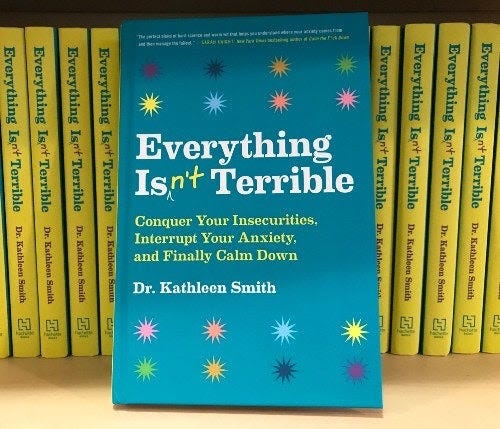What’s the one area of life where you waste the most energy?
Many people would say social media, but I have a different suggestion for you: your relationships.
How much mental and emotional energy do you spend on these behaviors?
Wondering whether someone likes you.
Wondering whether you’re annoying someone.
Detecting potential upsetness in others.
Assuming you know what people think or need.
Trying to be the kind of person others want you to be.
Worrying about others’ reactions.
Trying to get approval, attention, or agreement from others.
Trying to get other people to behave better.
The more energy you put into this kind of relationship-focus, the less you have to direct yourself or work towards your goals. And the more anxious your relationships tend to be.
This is the relationship paradox, according to Bowen theory—when less life energy is bound up in our relationships, we tend to have better relationships.
We’re also more likely to set and meet our goals.
This is easy to understand in a parent-child relationship. If you’re anxiously focused on a kid and uber-sensitive to their emotions, it’s not helpful for a child. But we often forget this in our adult relationships. We spend a lot of energy trying to prevent distress in others or trying to chase after approval or attention from them.
Once I worked with a mother and adult daughter who were very allergic to each other after a divorce. Mom was frustrated that her daughter wasn’t more interested in developing a relationship with her new stepfather and step siblings. When the daughter did visit, the mother’s emotional antennae were up. She was very focused on making the daughter feel comfortable. No matter how much Mom tried to make her feel included, the daughter only felt more alienated from this new family.
For this relationship, the solution wasn’t more attention—it was less. Mom needed to back up and give her daughter the space to navigate these new relationships with her own best thinking. She needed to treat her child like she was adult who was capable of handling a stepfamily. Not like a kid who would run away at the smallest threat.
When tension is high in a relationship, it’s easy for us to see the resolution hinging on others changing or behaving better. “If only my wife would do X,” or, “If only they’d get along” are common thoughts. We fail to see how our increased focus on others often invites the very opposite behavior we desire. It’s not our fault, but we’re certainly not helping. Often shifting the focus to our own endeavors, without distancing from the relationship itself, can do wonders to calm things down.
So this week, try thinking about where your energy is going. Try shifting your energy away from mind-reading or managing others, and towards how you want to manage yourself. Here are a few examples.
Relationship-focus: He probably thought I sounded dumb in that meeting.
Self-focus: How well was I able to articulate my thinking?
____________
Relationship-focus: She is probably annoyed I haven’t returned her email.
Self-focus: What’s my definition for being responsible with my email?
____________
Relationship-focus: They’ll probably be in a bad mood when they get home.
Self-focus: How can I regulate my emotions when others are distressed?
____________
Relationship-focus: I need to make sure everyone feels welcome.
Self-focus: How would I like to welcome people?
This shift doesn’t mean the anxiety will go down right away. Initially, others may feel neglected or confused when you begin to invest less energy in relationship-focus. But over time, the distress or disapproval of others may begin to seem more manageable. People may seem more capable than you assumed. And your relationships will have the freedom to be more intimate and interesting than you thought possible.
News from Kathleen
Nothing new this week! More podcast interviews and Forge Mag essays coming soon.
Want to support my free newsletter? Buy me a coffee to keep the thoughts flowing.
Want to read more of my writing? You can read old newsletters at my website, or buy my book Everything Isn't Terrible from Amazon, Barnes and Noble, Indiebound, or your local bookstore (best option).
Want a free anxiety journal with the book? Calming Down & Growing Up: A 30 Day Anxiety Journal includes thirty daily prompts to help you reflect on and respond to your anxious behaviors. To receive a copy, just email me your receipt of Everything Isn’t Terrible.
Email me if you’re interested in Bowen theory coaching or want me to speak to your group or workplace. Follow me on Twitter, Facebook, or Instagram.
Want to learn more about Bowen theory? Visit the Bowen Center’s website to learn more about their conferences and training programs.





